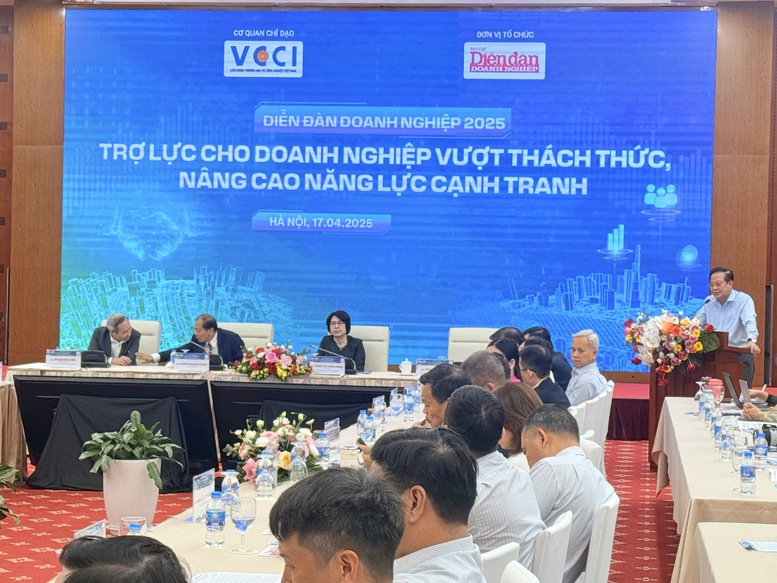
Business Forum 2025 with the theme "Supporting businesses to overcome challenges and improve competitiveness" - Photo: VGP/HT
This is the content discussed at the 2025 Business Forum with the theme "Supporting businesses to overcome challenges and improve competitiveness" on the afternoon of April 17, organized by the Vietnam Federation of Commerce and Industry (VCCI).
Institutional reform – the first lever to create business momentum
Speaking at the Forum, Mr. Hoang Quang Phong - Vice President of VCCI emphasized: In the context of strong fluctuations in the world, from geopolitical conflicts to inflation risks and supply chain disruptions, the business community is under a lot of pressure. Although Vietnam achieved a growth rate of 6.93% in the first quarter of 2025, the number of businesses returning to operation increased sharply, but only 32% of businesses said they would expand their business in the next two years.
The Vice President of VCCI said that reforming economic institutions, improving the business environment, promoting and supporting enterprises will be the key "keys". Not only increasing the capital absorption capacity of enterprises, developing and improving the competitiveness of Vietnamese enterprises, especially the private economic sector, to gradually master core technology and penetrate deeper into the global value chain is an important requirement in the coming time.
"In fact, in recent times, to support businesses to recover and promote growth, the Party, State and Government have made many decisions to develop businesses, aiming to ensure the national growth target of 8% or more in 2025. However, in a volatile world, businesses also need more support from authorities at all levels," said Mr. Hoang Quang Phong.
According to Mr. Phan Duc Hieu - Standing Member of the National Assembly's Economic Committee: Institutional reform does not stop at cutting procedures but also cuts compliance costs - a silent burden for businesses.
Large enterprises play an important role, being the core leading the development of industries and the whole economy. Therefore, Mr. Hoang Quang Phong said that, in addition to the goal of developing 2 million enterprises by 2030, the 13th National Party Congress also affirmed "Encouraging the formation and development of large private economic groups with strong potential and the ability to compete regionally and internationally". Resolution 41-NQ/TW also sets out the task of "developing a strong team of entrepreneurs on par with the goals and tasks of national development in the new period, building a team of national entrepreneurs".
"Currently, the whole country has about 700 Associations and Clubs of businesses and entrepreneurs, of which about 100 associations have nationwide scope of operation... Most of the operating enterprises participate in one or several business associations, thereby creating an increasingly enhanced network of business connections within the Associations," said the leader of VCCI.
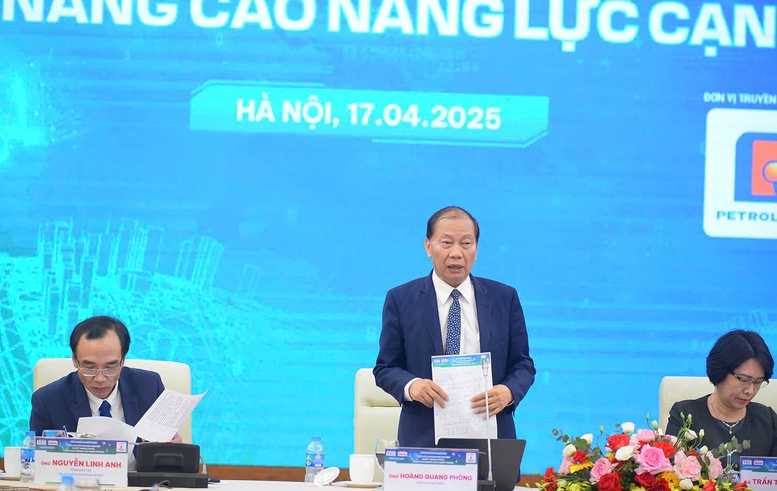
Mr. Hoang Quang Phong - Vice President of VCCI speaking at the Forum - Photo: VGP/HT
Mr. Phan Duc Hieu proposed that it is necessary to improve the quality of current regulations, increase the effectiveness of law enforcement, especially build a sustainable reform mechanism, separate from dependence on individuals or single agencies.
From the perspective of enterprises, Mr. Nguyen Quoc Hiep - Chairman of the Vietnam Association of Construction Contractors said that many current procedures still require 5-6 seals, causing enterprises to waste time and money. Mr. Nguyen Quoc Hiep suggested reducing the number to one seal and improving the process of receiving opinions on law making, in order to increase transparency and suitability to reality.
Strengthening internal governance, chain linkage and digital transformation
Ms. Tran Thi Hong Minh - Director of the Central Institute for Policy and Strategy Studies (CIEM), Central Policy and Strategy Committee assessed: Forms of association such as supply chains, capital contributions, strategic cooperation... are increasing but not uniformly and systematically.
Up to 97% of Vietnamese enterprises currently have no export-related activities, and 99% do not participate in production for foreign countries. This is a situation that needs to change if Vietnam wants to go deeper into the global value chain.
On the business side, Mr. Nguyen Duy Hung, representative of Tan Hiep Phat, said that in order for Vietnamese enterprises to compete, in addition to technological innovation, it is necessary to invest in national quality infrastructure and a system of standards that are in line with international standards. At the same time, large enterprises need to be "leading birds" to lead the value chain and support small enterprises.
Sharing the same view, Mr. Mac Quoc Anh - General Secretary of the Hanoi Association of Small and Medium Enterprises proposed to merge the Enterprise Law and the Law on Support for Small and Medium Enterprises, and at the same time reduce 15% of corporate income tax for reinvestment in green technology, digitalization, along with policies on hiring experts and free digital signatures and electronic invoices.
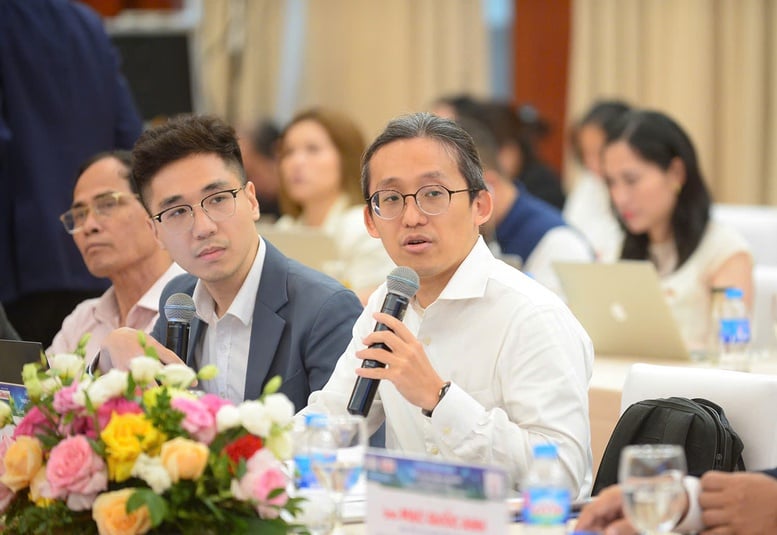
Mr. Andrew Yeh - CEO of Slasify shares international perspective - Photo: VGP/HT
From an international perspective, Mr. Andrew Yeh - CEO of Slasify informed: Many Vietnamese companies, from dynamic technology startups to manufacturing and retail enterprises, are aiming at international markets. However, global expansion brings challenges, especially in global human resource management (HR), including recruiting high-quality personnel, cultural differences and compliance requirements, while controlling costs and maintaining flexibility...
“As businesses become more involved in different countries, these issues will multiply and become more complex,” said Andrew Yeh.
Mr. Andrew Yeh suggested: Vietnamese enterprises need to modernize human resource management with technology. The EOR (Employer of Record) solution will help enterprises expand globally more easily and flexibly, especially in cross-border human resource management.
Emphasizing the role of integration, Mr. Trinh Minh Anh - Chief of Office of the Steering Committee for Economic Integration emphasized: FTAs have helped Vietnam stand in the top 20 countries with the largest trade scale in the world. However, the rate of taking advantage of FTA incentives is only about 37%, due to lack of information, difficulty in meeting technical, environmental and labor standards.
To overcome this, Mr. Trinh Minh Anh recommended that enterprises should proactively learn, update, and make good use of the FTA Information Portal of the Ministry of Industry and Trade. At the same time, they should link the intra-bloc supply chain to increase the localization rate, reduce dependence, and increase the ability to enjoy tax incentives.
Mr. Trinh Minh Anh recommends: Enterprises need to carefully study the regulations on tariffs, rules of origin (C/O), technical standards, and non-trade commitments (labor, environment, sustainable development) in each FTA (such as CPTPP, EVFTA, UKVFTA); attend seminars and courses organized by the Ministry of Industry and Trade, VCCI or industry associations to grasp information and ways to take advantage of incentives; Exploit the FTA Information Portal of the Ministry of Industry and Trade (ftaportal.moit.gov.vn) to look up tariff schedules, regulations, and FTA implementation instructions; update early warning information on trade defense cases from the Ministry of Industry and Trade...
In addition, it is necessary to optimize the rules of origin (C/O), ensuring that products meet the rules of origin to enjoy tariff preferences, such as the localization rate or pure origin according to the regulations of each FTA; linking with domestic suppliers or FTA regions to increase the proportion of domestic raw materials, reducing dependence on import sources outside the region.
Enhance competitiveness through improving product quality: Invest in technology, innovate designs, and meet technical standards, food hygiene and safety of FTA markets (such as green standards of the EU market); participate in industry associations; coordinate with associations to grasp market information, resolve difficulties (such as transportation costs, technical barriers) and international disputes; respond to trade defense lawsuits, etc.
In the field of supporting industry, Ms. Truong Thi Chi Binh - Vice President and General Secretary of the Vietnam Association of Supporting Industries (VASI) said: This industry is less affected by the US reciprocal tax, but needs the Government to support creating a market for Vietnamese leading enterprises. At the same time, encourage startups to focus on skilled engineers to increase the number and capacity of supporting enterprises.
Analyzing the potential of the tourism industry, Mr. Nguyen Trung Khanh - Director of the National Tourism Administration said: This industry aims to welcome 22-23 million international visitors in 2025. In addition to perfecting the institution, the Ministry of Culture, Sports and Tourism (MOCST) will promote and advertise multi-channel tourism, apply technology, manage civilized destinations, and build a safe, friendly and smart tourism ecosystem.
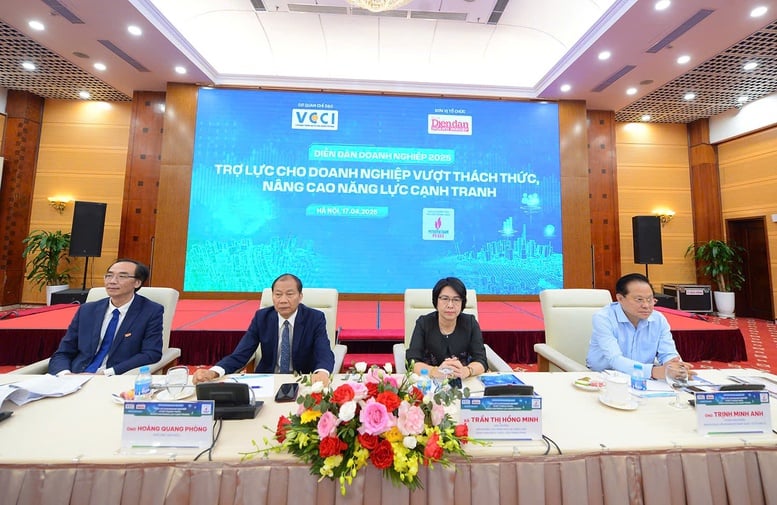
VCCI leaders affirmed that the recommendations at the Forum will be received, synthesized, and reported to Party and Government agencies - Photo: VGP/HT
In his concluding remarks, Mr. Hoang Quang Phong - Vice President of VCCI affirmed that the recommendations at the Forum will be received, synthesized and reported to Party, Government and Prime Minister agencies.
"The important thing is that solutions need to be put into policy and into practice to remove difficulties and support businesses to grow and develop," said a VCCI representative.
Mr. Minh
Source: https://baochinhphu.vn/cai-cach-the-che-tro-luc-de-doanh-nghiep-but-pha-102250417192230574.htm


![[Photo] Binh Thuan organizes many special festivals on the occasion of April 30 and May 1](https://vstatic.vietnam.vn/vietnam/resource/IMAGE/2025/5/1/5180af1d979642468ef6a3a9755d8d51)


![[Photo] Ha Giang: Many key projects under construction during the holiday season](https://vstatic.vietnam.vn/vietnam/resource/IMAGE/2025/5/1/8b8d87a9bd9b4d279bf5c1f71c030dec)
![[Photo] "Lovely" moments on the 30/4 holiday](https://vstatic.vietnam.vn/vietnam/resource/IMAGE/2025/5/1/26d5d698f36b498287397db9e2f9d16c)
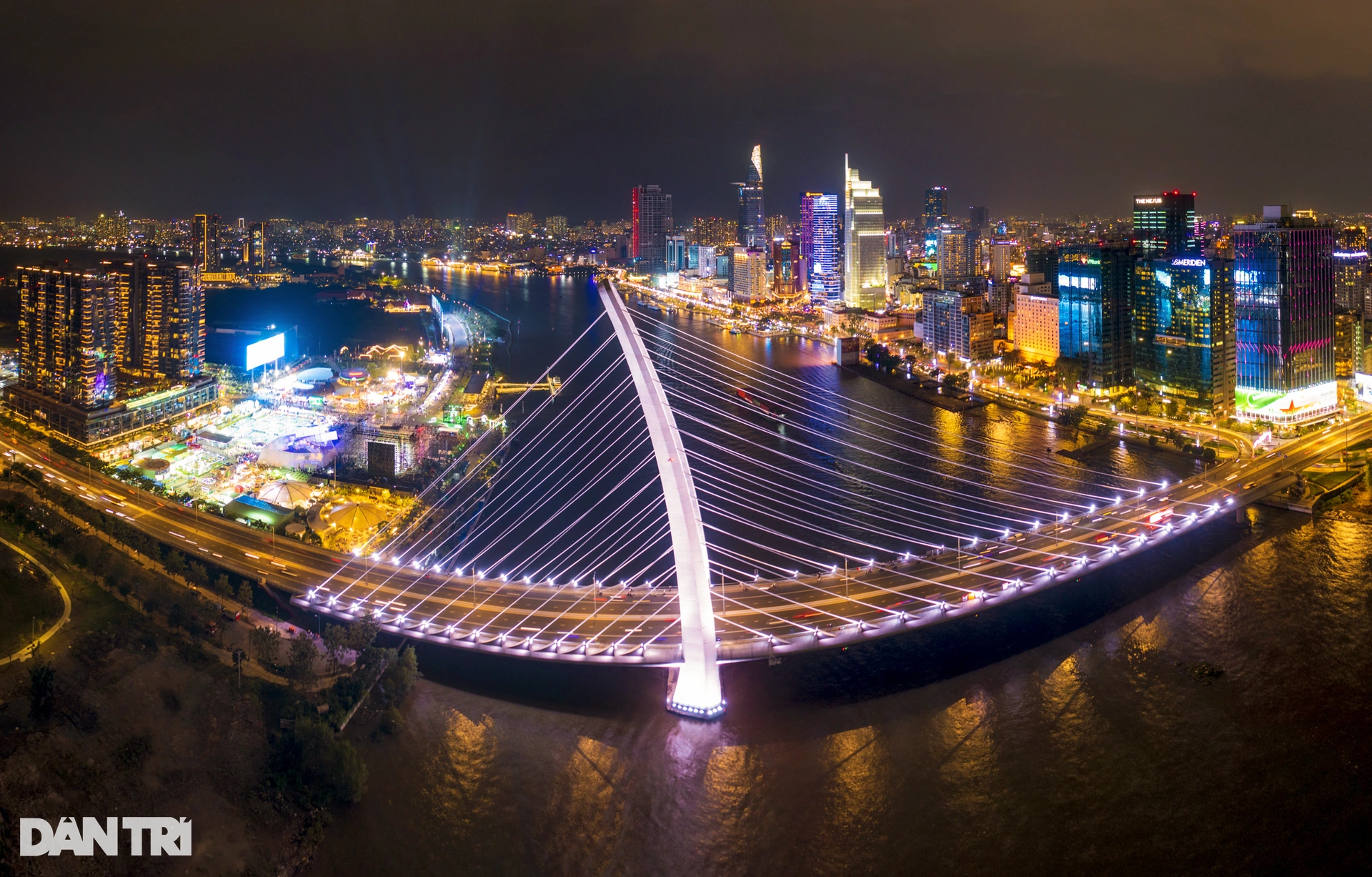

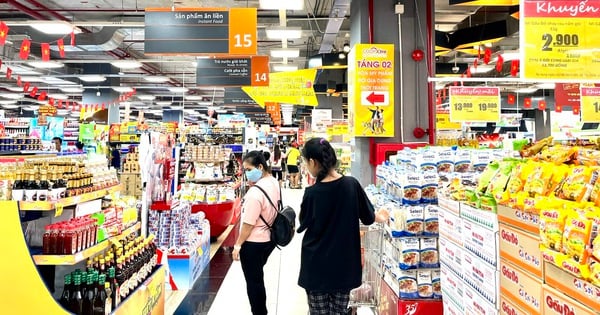
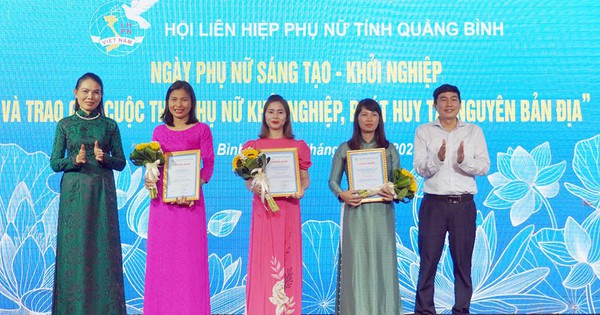
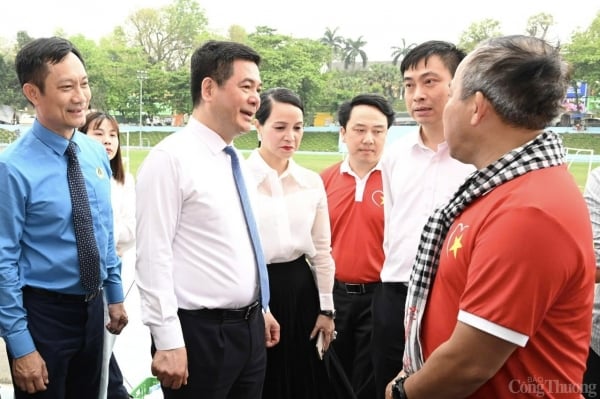



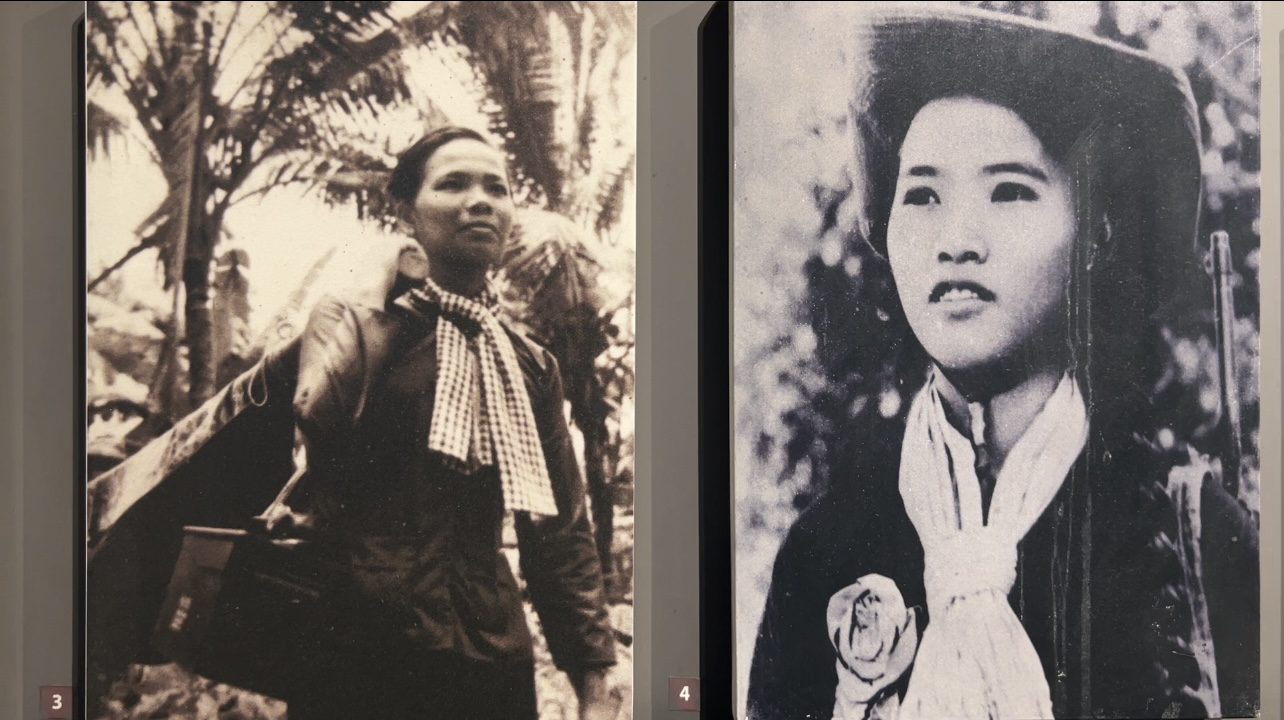

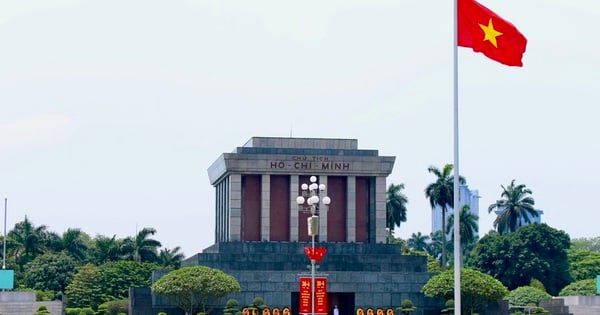

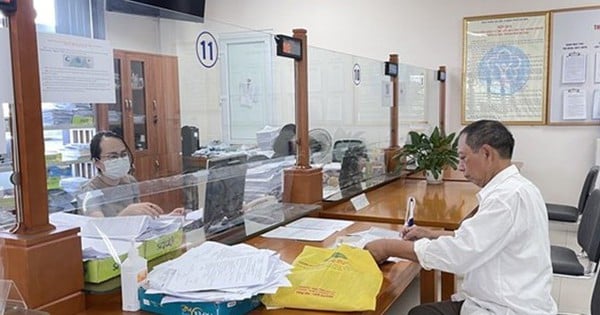

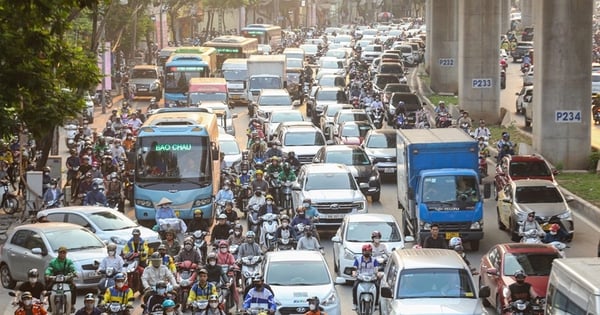
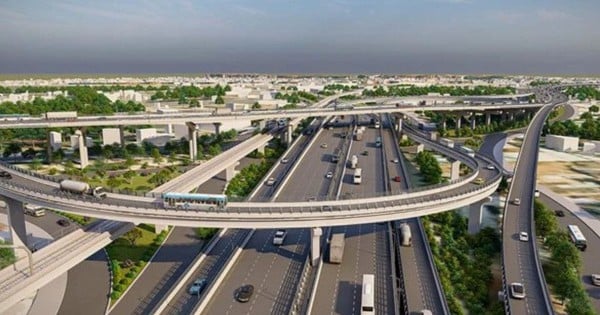




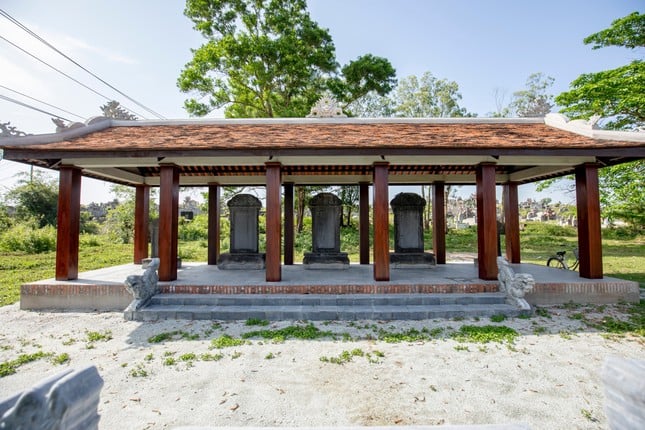



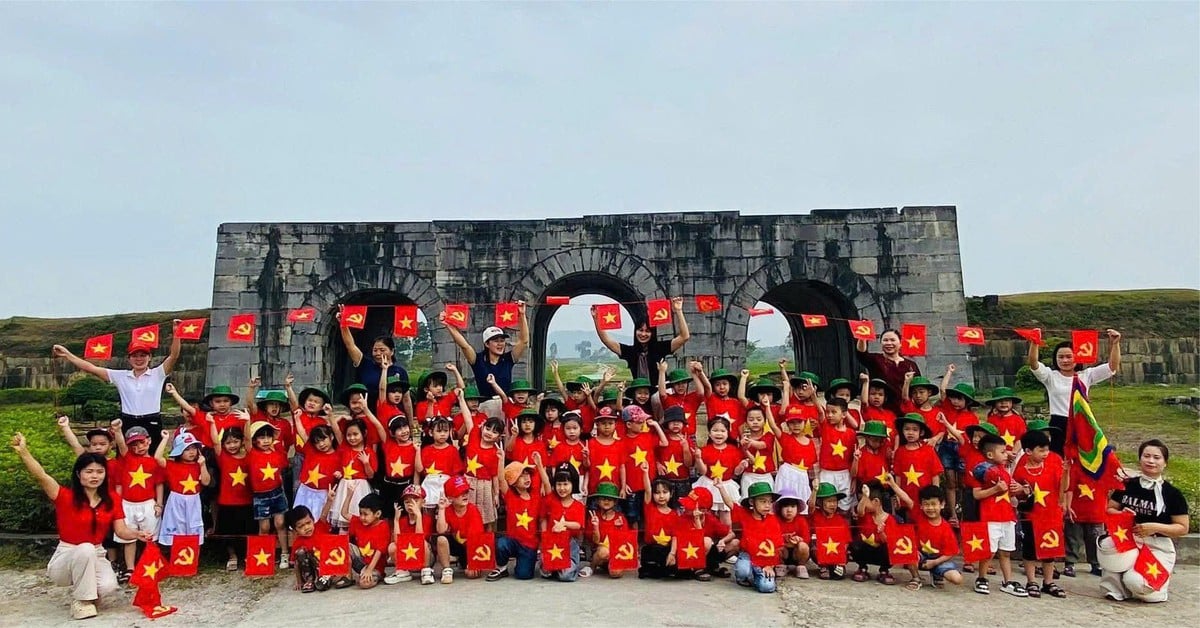









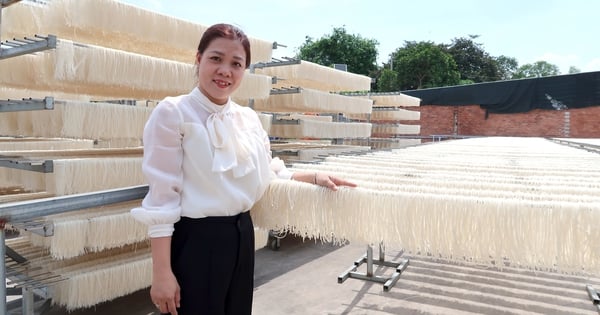















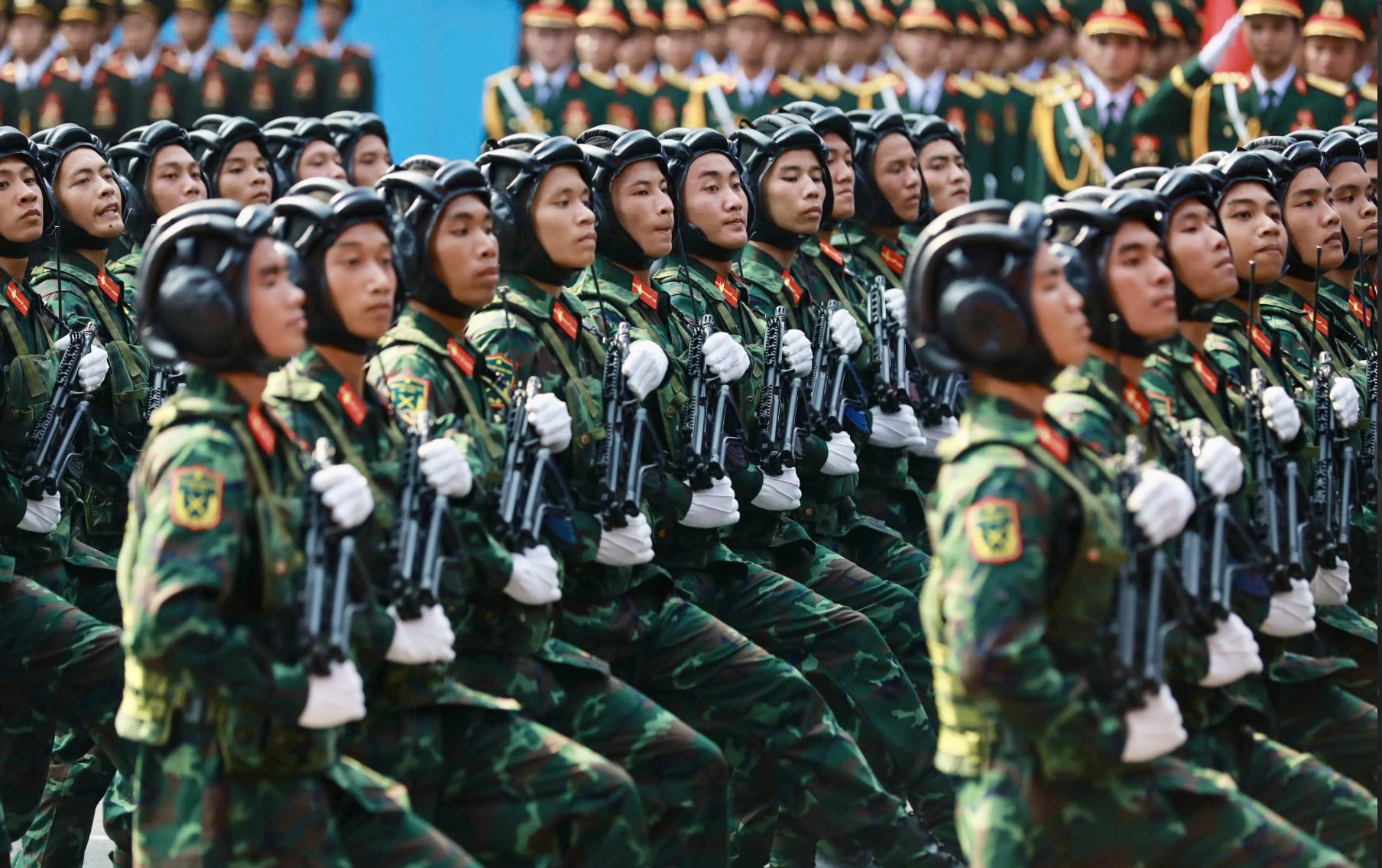














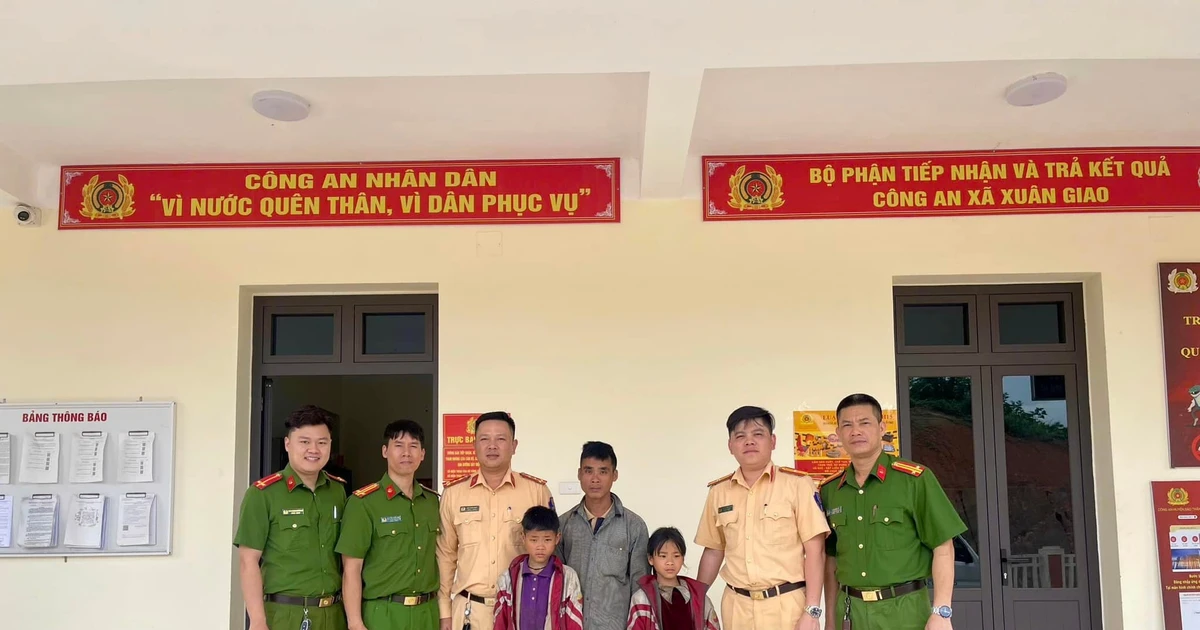




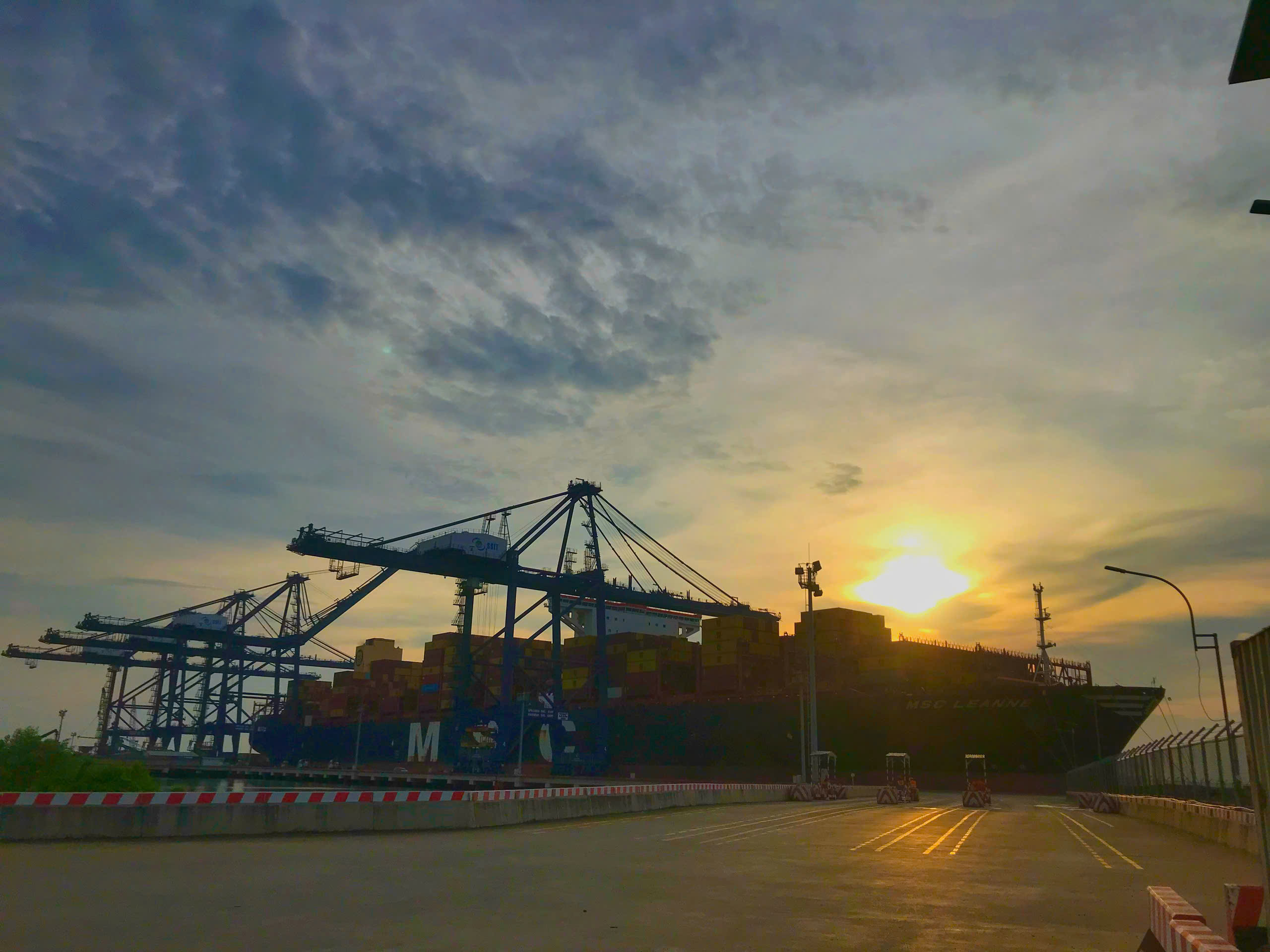









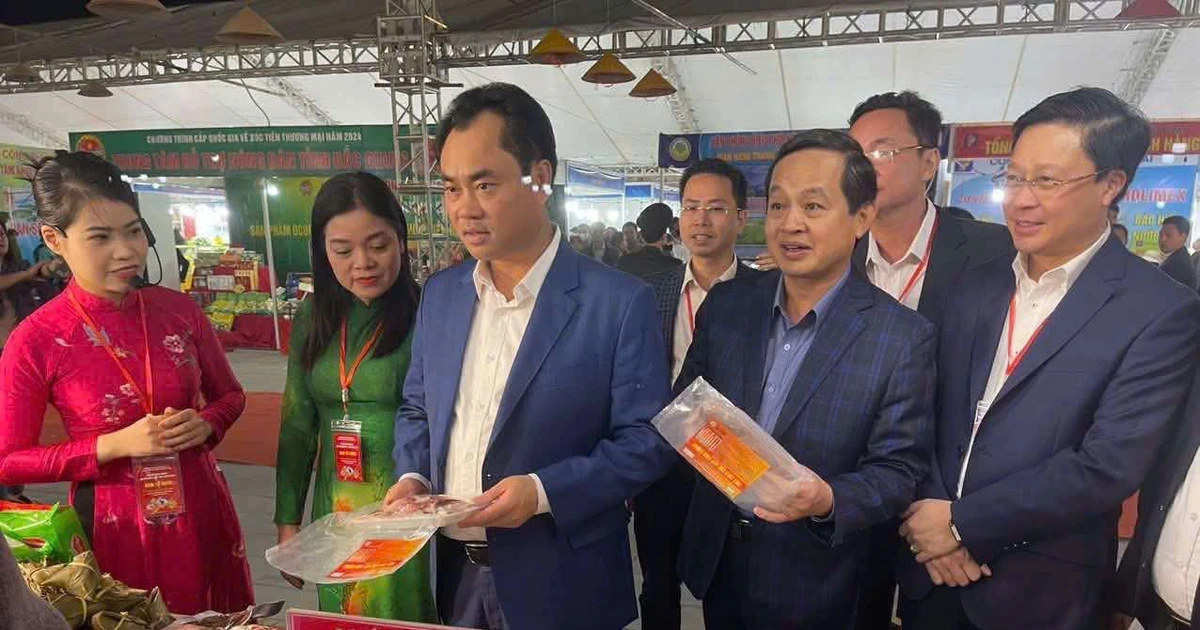



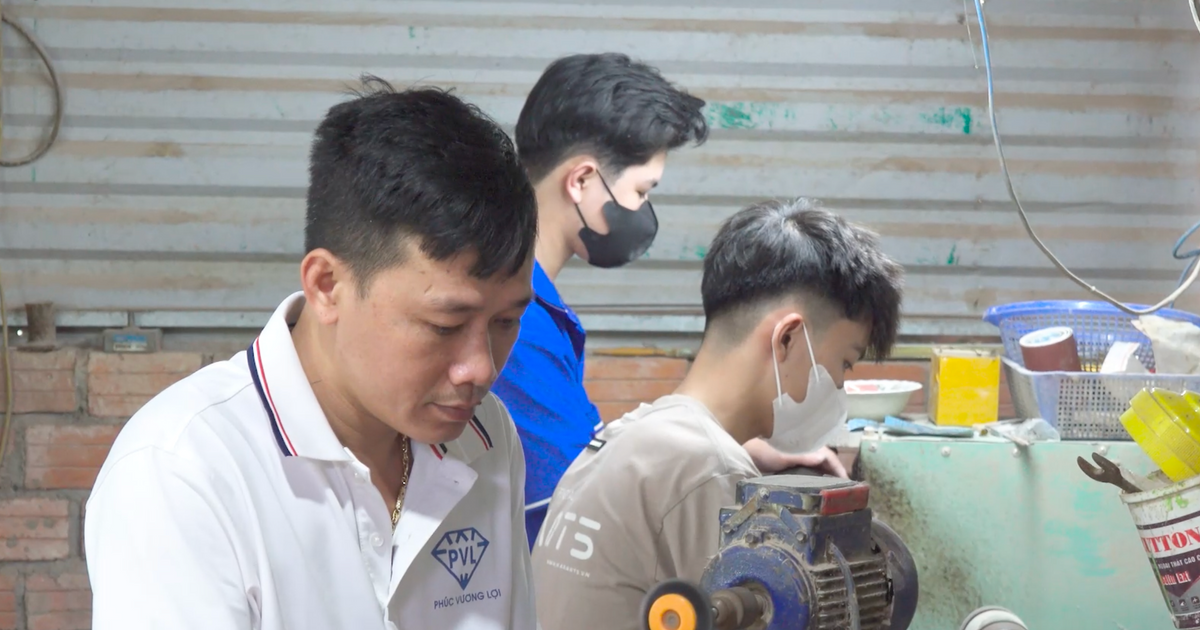

Comment (0)